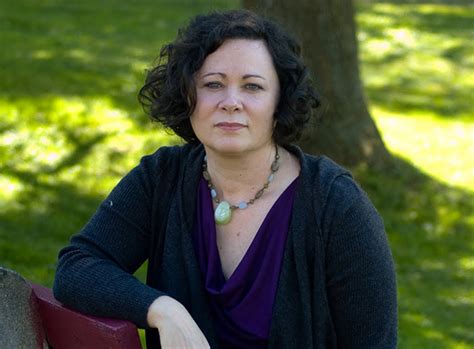A Quote by Tea Obreht
Kelly Link's prose is conveyed in details so startling and fine that you work up a sweat just waiting for the next sentence to land. This is why we read, crave, need, can't live without short stories.
Related Quotes
We read novels because we need stories; we crave them; we can’t live without telling them and hearing them. Stories are how we make sense of our lives and of the world. When we’re distressed and go to therapy, our therapist’s job is to help us tell our story. Life doesn’t come with plots; it’s messy and chaotic; life is one damn, inexplicable thing after another. And we can’t have that. We insist on meaning. And so we tell stories so that our lives make sense.
Dialogue that is written in dialect is very tiring to read. If you can do it brilliantly, fine. If other writers read your work and rave about your use of dialect, go for it. But be positive that you do it well, because otherwise it is a lot of work to read short stories or novels that are written in dialect. It makes our necks feel funny.
So give up waiting as a state of mind. When you catch yourself slipping into waiting . . . snap out of it. Come into the present moment. Just be, and enjoy being. If you are present, there is never any need for you to wait for anything. So next time somebody says, “Sorry to have kept you waiting,” you can reply, “That's all right, I wasn't waiting. I was just standing
I started writing the book without realizing I was writing a book. That sounds stupid, but it's true. I'd been trying and failing to make a different manuscript work, and I thought I was just taking a break by writing some short stories. I'm not a very good short story writer - the amazing compression that is required for short stories doesn't come easily to me. But anyway, I thought I'd try to write some short stories. And a structure took shape - I stumbled upon it.
Writing is linear and sequential; Sentence B must follow Sentence A, and Sentence C must follow Sentence B, and eventually you get to Sentence Z. The hard part of writing isn't the writing; it's the thinking. You can solve most of your writing problems if you stop after every sentence and ask: What does the reader need to know next?
Every sentence has a truth waiting at the end of it and the writer learns how to know it when he finally gets there. On one level this truth is the swing of the sentence, the beat and poise, but down deeper it's the integrity of the writer as he matches with the language. I've always seen myself in sentences. I begin to recognize myself, word by word, as I work through a sentence. The language of my books has shaped me as a man. There's a moral force in a sentence when it comes out right. It speaks the writer's will to live.
...Mr. Wodehouse is a prose stylist of such startling talent that Frankie nearly skipped around with glee when she first read some of his phrases. Until her discovery of Something Fresh on the top shelf of Ruth's bookshelf one bored summer morning, Frankie's leisure reading had consister primarily of paperback mysteries she found on the spinning racks at the public library down the block from her house, and the short stories of Dorothy Parker. Wodehouse's jubilant wordplay bore itself into her synapses like a worm into a fresh ear of corn.






































